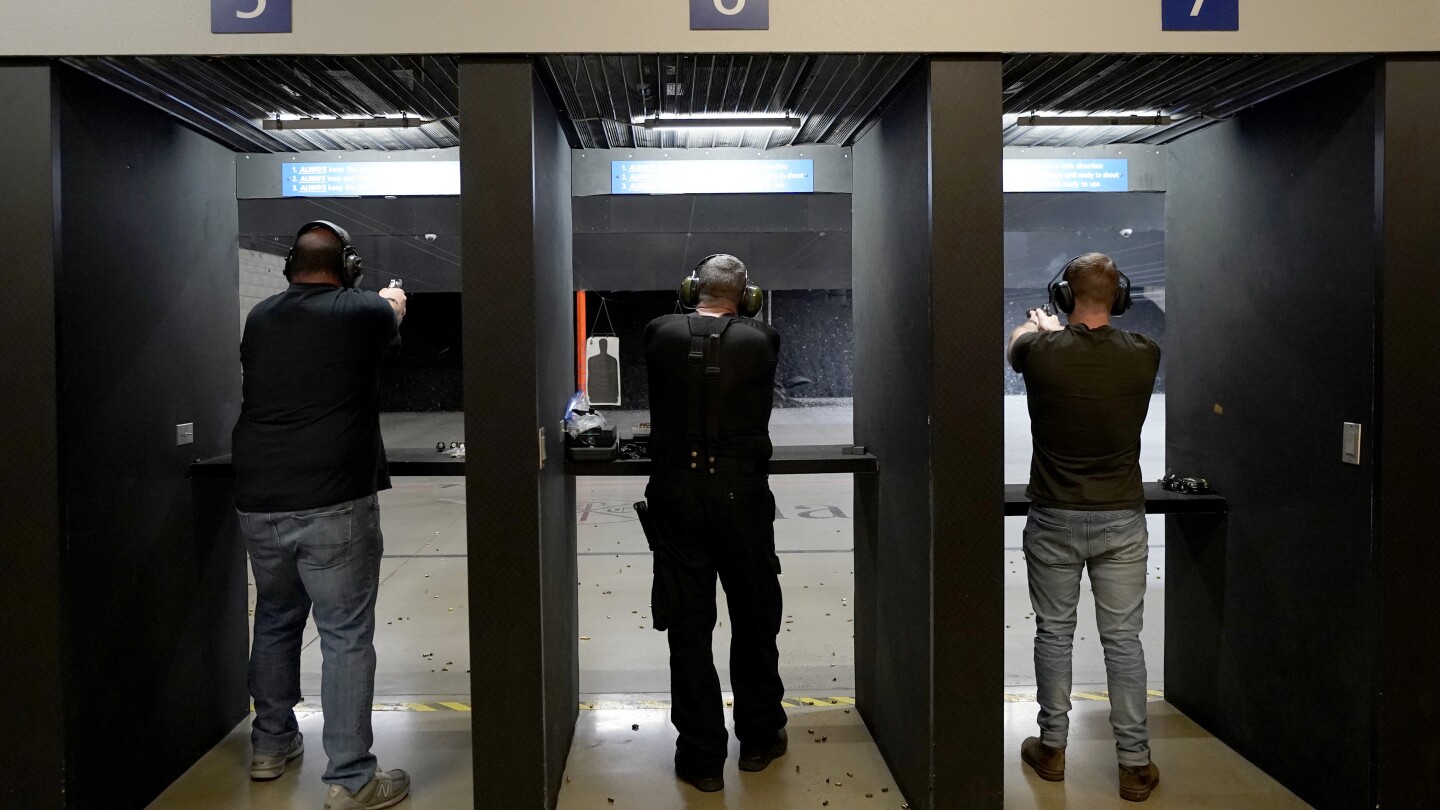LOS ANGELES (AP) — A new California law that bans people from carrying firearms in most public places was once again blocked from taking effect Saturday as a court case challenging it continues.
A 9th Circuit Court of Appeals panel dissolved a temporary hold on a lower court injunction blocking the law. The hold was issued by a different 9th Circuit panel and had allowed the law to go into effect Jan. 1.
Saturday’s decision keeps in place a Dec. 20 ruling by U.S. District Judge Cormac Carney blocking the law. Carney said that it violates the Second Amendment and that gun rights groups would likely prevail in proving it unconstitutional.
The law, signed by Democratic Gov. Gavin Newsom, prohibits people from carrying concealed guns in 26 types of places including public parks and playgrounds, churches, banks and zoos. The ban applies regardless of whether a person has a concealed carry permit.



So where in any of those quotes do they say that specifically to do with outside of the militia? In a militia, people always provided their own weapons. They held them privately and took them to drills and gatherings for the militia. Each. One of those quotes is completely in line with that concept.
You’re going to need to show me some quotes. Outlining that they need to keep weapons personally to shoot their neighbors or people that they don’t like just for fun. Or something like Madison or pining how every American needs a gun to shove up their ass to keep warm during the winter or something. Because none of those quotes specifically say that this is intended for outside of the militia. Each and every quote can be interpreted with that in mind. Or you can go against the wording of the second amendment. And try to interpret this in ways that the founders did not intend, which is what we’ve done for many amendments. Some good, some bad.
Because at the time, there was no concept of “inside” or “outside” the militia, other than women and children, who unfortunately didn’t warrant much consideration.
In any case, it’s quite clear - the 2a doesn’t say “the militia shall be allowed to have guns” it says “the right of the people to keep and bear arms shall not be infringed”. The militia is brought up more to underline the importance of this right - if we want to be able to defend ourselves (be it individually or collectively) we must have access to weapons.
Then how can you in honesty or good faith hand wave away the talk of militia. You can’t.
False. This is the literal text of the 2nd amendment.
“A well regulated Militia”, primary subject. “being necessary to the security of a free State”, core thought. “the right of the people to keep and bear Arms”, connected secondary subject. The militia being the people. “shall not be infringed.”, conclusion.
Yes, the militia was not a separate concept from the people, they were used interchangeably, there was no inside vs outside the militia. I’m glad we agree
So you’re saying the 2nd amendment concerns the militia? It’s funny then that you all constantly insist that 2/3 of the text of the second amendment doesn’t exist.